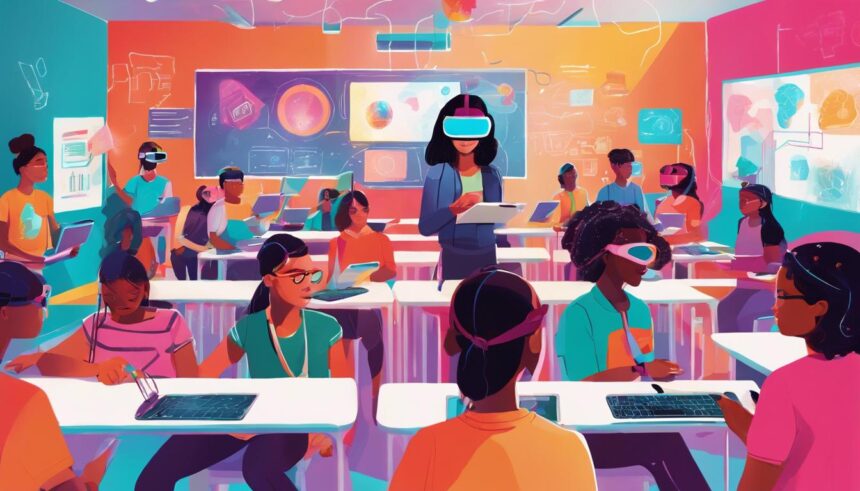The Aurora Institute proposes a set of policy recommendations aimed at revamping the K-12 education system to better meet individual student needs and prepare them for the modern world.
In an ambitious move to overhaul the K-12 educational landscape, the Aurora Institute has released a comprehensive set of policy recommendations aimed at tailoring learning environments to be more equitable, individualized, and efficient. This initiative, rolled out on April 25, 2024, targets state legislators and educational policymakers with a strategy designed to dismantle the traditional, generalized approach to education and replace it with a system that focuses on each learner’s unique needs and potential.
The Aurora Institute, a vanguard in educational research and advocacy, proposes a transformative framework comprising six key policy areas. These include the development of a “Profile of a Graduate”, which redefines the outcomes of education to better prepare students for a rapidly changing world. This novel concept aims to outline a comprehensive set of competencies that students must achieve by the time they graduate, ensuring readiness for the future job market or further educational pursuits.
In addition, the Institute advocates for the creation of conditions that favor learner-centered, competency-based education systems. Such systems assess students based on their ability to demonstrate mastery of skills and knowledge, rather than time spent in class, thus allowing for a more personalized and flexible learning experience.
The proposed transformation extends to the system of assessments itself. The recommendations call for a shift from traditional high-stakes testing to more comprehensive, ongoing methods of evaluation that provide real-time feedback to students and educators. This change is crucial in supporting individual learning paths and helping students develop at their own pace.
The Aurora Institute also seeks to align accountability and data systems with these new teaching and learning paradigms. By redesigning how educational success is measured, states can not only encourage innovation and engagement from educators and learners but also ensure that the system is genuinely responsive to the educational needs of all students.
Support for educators under this new system is another cornerstone of the recommendations. The Aurora Institute emphasizes the need for professional development and resources that enable teachers to succeed within competency-based education models. Training and support systems are crucial in equipping educators with the skills needed to facilitate personalized learning experiences effectively.
Lastly, the Institute calls for a fundamental redesign of learning experiences to make them more relevant to the global economy and digital world. This includes integration of technology, real-world problem solving, and collaborative studies, promising a vibrant educational environment that prepares students to succeed in the 21st century.
Virgel Hammonds, CEO of the Aurora Institute, stresses that these policy recommendations are designed not only to advance educational systems but also to make them more equitable. By personalizing learning trajectories, the aim is to meet each learner at their point of need, thereby removing barriers to educational access and success.
As these recommendations are disseminated among state policymakers, education agencies, and local leaders, the drive towards a revamped, learner-centered education system gains momentum. The Aurora Institute stands ready to support stakeholders in implementing these changes, with the ultimate goal of establishing a more effective, inclusive, and forward-thinking educational framework. The Institute believes that such transformative policies are the key to unlocking the full potential of all students, setting them on the path to lifelong success and fulfillment.





